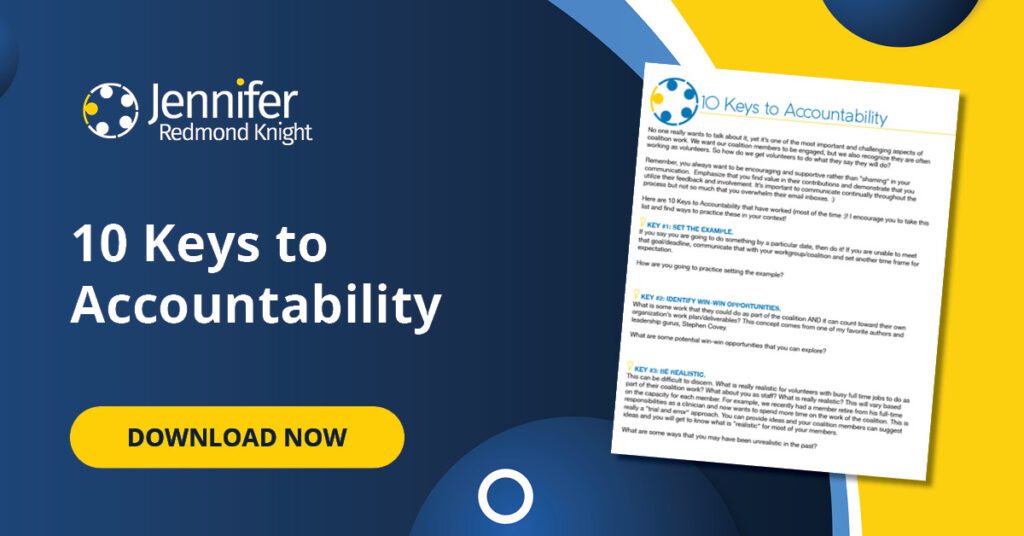Setting the example is the most powerful way to encourage accountability. If we want our coalitions, partnerships, teams, workgroups or councils to follow-through, we have to do what we say we are going to do. When we are unable to follow-through as intended, it is incredibly important for us to be honest about it with our partners, colleagues and friends. Join me this week for three reasons to set the example with your coalition.
Builds Trust
Since coalitions and partnerships are all about relationships, in order to work together well, we have to trust one another. When we do what we say we will do at the time we say we are going to do it, we build trust. Trust is built when we consistently do small things over time – such as doing what we say we will do and being open and honest when we are unable to do them. If you would like to read more on this, check out one of my previous blogs on Change and Building Trust. If you want to read further on the topic, I recommend Stephen M.R. Covey’s book, the Speed of Trust.
Models Commitment
When you set the example of accountability and follow-through, you demonstrate commitment. If your coalition and partnership members see that you are truly committed, it inspires them to join you. As we all know, actions speak louder than words! Also, it prevents us from ending up in the difficult place of “over-selling and under-delivering.” If you want to explore this concept further, The Leadership Challenge, provides insight into how you can “Model the Way.”
Maintains Momentum
As coalition staff, it can be really easy to become overwhelmed by the next project, meeting or report that we don’t take the time to follow-through in a timely manner. Even as I write this post, I can think of a group that needs me to follow-through in order to keep the conversation and the work progressing! When we follow-through, particularly after an engaging meeting, we maintain momentum for the collective work.
So what about you? What are you going to do to set the example this week?
Check out my latest free resource that walks you through practical ways to apply each of these 10 Keys to Accountability!
Photo by Jess Zoerb on Unsplash

